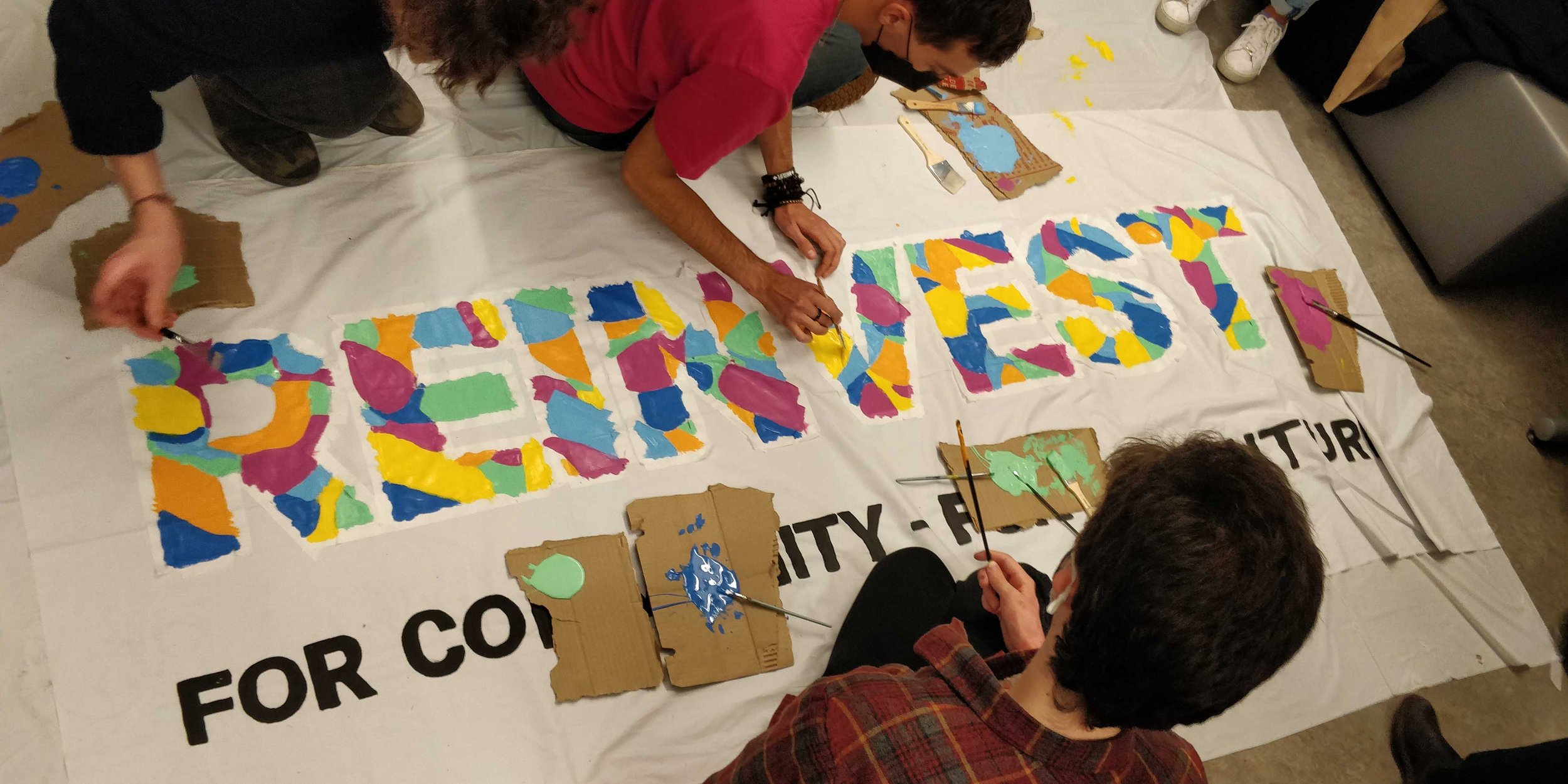What is Community Reinvestment?
-
Community reinvestment means investing capital into projects that provide social and/or environmental benefits to local communities — often from funds that have divested from fossil fuels.
This includes providing financing to meet the needs of local communities within a geographical region that do not have access to them otherwise, particularly due to the exclusionary nature of traditional financing mechanisms. Bank loans with high-interest rates, for instance, pose barriers to those without credit history or the upfront cash needed to access them.
-
Community reinvestment strategies can be differentiated from more traditional forms of investment in a few key ways. Community reinvestment strategies target social and environmental impacts in local communities, rather than prioritizing significant financial targets. However, community reinvestment is not charity or philanthropy; it still requires a financial return for the investor.
-
In principle, community reinvestment must emphasize community agency and self-determination. As a part of this approach, community reinvestment strategies should promote community ownership and community-driven development, with priority being placed on those communities which have been systematically excluded from conventional investments. This can be done through options such as community development, financial institutions, and procurement preferences.
-
Feel free to check out our glossary to understand the terms on our website.
Why should UBC, SFU, and UVic
reinvest in our communities?
UBC, SFU and UVic have all committed to or made steps towards divesting from fossil fuels.
Now that this process has begun, our universities have the opportunity to redefine what constitutes a viable investment.
-
The decisions our universities make have ripple effects across the larger region and world. University governing boards have a considerable degree of influence on the institutions’ positioning within civil society. We have seen how universities have the power to cut ties with extractive industries with divestment declarations and are capable of leveraging their assets to meet community needs and advance social and economic justice. Our universities need not be a passive force in the community reinvestment discourse; rather, they can play an active role in taking leadership and challenging mainstream investing beyond green capitalism.
Currently, most university investments do not support the local community and in many cases actively cause harm. Through community reinvestment, UBC and SFU will not only strengthen the local economy, create jobs, and generate local income, but also directly address many existing university priorities.
-
Our universities all have long legacies of student power and activism. As students, we have the power to demand how our universities' investments should be serving us. We want to strengthen the narrative that our universities have a moral obligation to us, to our communities, our neighbourhoods, our families and our future and to reiterate that we need to place people over profits.
UBC, SFU and UVic all seek to be global leaders. Their mission statements express a desire to create a better society and future for their students and the broader society. It is time to hold our universities accountable to their public mandates, urging them to ensure that their investments are aligned with climate justice principles, that they value people over profit, and that their decisions are rooted in the needs of the community. Let’s move towards a people's endowment!
-
UBC and SFU are not isolated from the challenges in our communities. Our universities are deeply embedded in the surrounding region.
Universities are “anchor institutions” meaning they stay in one location for a long period of time; therefore, it makes sense that they have a vested interest in the well-being of their local community. The anchor institution concept suggests that universities are more likely to be productive and competitive if they are situated in a neighbourhood with the conditions to encourage the growth of social capital - for example, quality public transport, affordable housing, local renewable energy projects and thriving local businesses. In turn, the growth and success of a university is likely to draw more people, capital, and knowledge to the neighbourhood it’s in, fostering the development of the university in an ongoing cycle of community-wide economic growth.
-
Increasing importance is being placed on the role of universities in fostering civic engagement to inform research and teaching. Challenging how we traditionally define engagement involves interrogating how university investments can and should be allocated. This would mean upholding their mission statements and intentionally addressing social and economic inequities that exist in our communities in the face of the climate crisis, ballooning wealth inequality and ongoing settler colonialism.
Furthermore, our universities have made commitments to responsible investment. Truly responsible investing must go beyond minimizing harm to actively cultivating social, economic and environmental wellbeing.
-
Community investments are not a new concept. In fact, there are several universities that have participated in and contributed to community investment, especially in the United States. For example, the University of New Hampshire Foundation has invested $3.06 million in the New Hampshire Community Loan Fund, offering loans to “finance businesses, childcare facilities, manufactured-home communities, rental housing, and nonprofit facilities”.
Potential investment vehicles for community investment include community bonds, community loan funds, community investment co-ops, impact GICs, social enterprise private equity or venture capital (through intermediary funds or direct investments), investment shares in cooperatives, government bonds, and Community Driven Outcomes Contracts.


